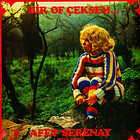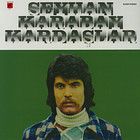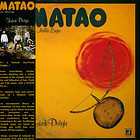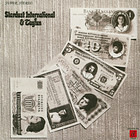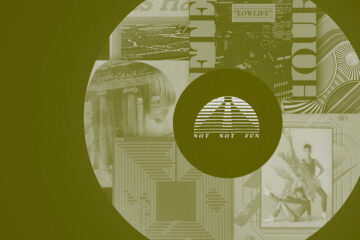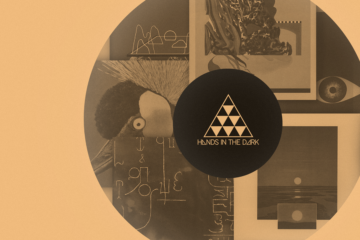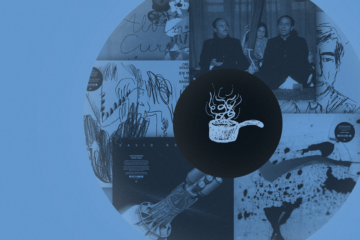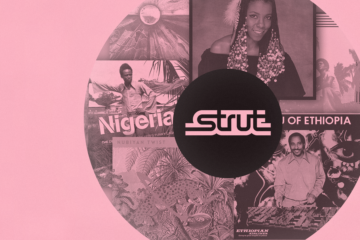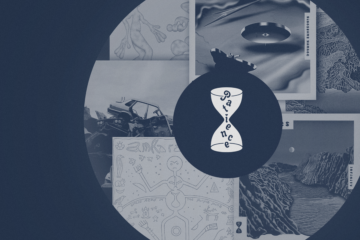Already its name suggests what Volga Çoban’s label is all about: »arşiv« means »archive,« »plak« is the Turkish word for »record.« But Arsivplak is not exclusively a reissue imprint that re-releases rare albums and singles by artists such as Özdemir Erdoğan, Şenay and Grup Bunalım as faithfully as possible. Under the name Arşivplak (with an ş), the self-proclaimed »amateur musician, drummer and owner of a MiniKorg 700S« also puts out edits and reinterpretations of Turkish folk, funk, disco, pop and rock songs. It all started in 2012 with the EP »Turkish Disco Folk Volga Nehri.« »Derdiyoklar İkilisi invented disco folk,« explains Çoban, referring to the legendary duo, whose wild sound had a decisive influence on the retrospective reception of the music of Turkish guest workers in the FRG . »I only added the word ›Turkish‹.«
Thus, on the one hand, Çoban distinguishes himself from labels that specialise purely in reissuing the music of famous Turkish artists such as Barış Manço, Selda Bağcan, Erkin Koray and others as faithfully as possible while on the other hand emphasising that he concentrates primarily on releases that came directly from Turkey. Which in turn does not mean that Arsivplak would limit himself stylistically. »I have been collecting records for over 25 years – Anadolu pop, pop, rock, folk, jazz – from 1962 to 1989, the year when vinyl was pressed for the last time in Turkey,« explains Çoban. »Nowadays it’s impossible because Turkish music got such a popularity boost, but back then nobody was interested in vinyl records.«
During the nineties and noughties, Çoban says, the audience was mainly interested in foreign music or bloodless pop music. His perspective on the history of popular Turkish music is therefore different from that of the generation that is currently coming to terms with the country’s past: he continuously works through his own musical upbringing. And in doing so, he has gone from being an expert who can glean more information from the matrix of a record than others can from the label to an active archivist.
On the one hand Arsivplak is guided by Volga Coban’s taste as a fan and DJ, and on the other hand he also wants to bring hitherto unheard sounds to light.
Almost a decade before he founded the label, Çoban was already selling Turkish music on eBay and accordingly networking with artists. In some cases, he laughs, they asked him at a meeting about licensing a reissue on Arsivplak if he still had an original copy of this LP or that single from back then for them. »Every album, every single has its own story,« he says. »I had been looking for Bunalım’s single ›Yeter Artık Kadın‹ for twenty years. It was released without the band’s consent, it was a demo recording.« In 2017, however, he made the seemingly impossible happen and was able to re-release the two songs.
Çoban’s work, as he emphasises, is in no way about exploiting the ongoing hype surrounding popular Turkish music of the second half of the 20th century: all income always goes directly into the next project; Arsivplak is a zero-sum game. Instead, he is guided on the one hand by his taste as a fan and DJ, and on the other hand he also wants to bring hitherto unheard sounds to light. »I visited the recently deceased Seyhan Karabay several times in Turkey and we decided to release a compilation with his tracks,« he recalls a memorable event. »He didn’t even want much money for it. In fact, he even sent us unreleased tracks and demos. If we hadn’t published them, no one would ever have known about them!«
However, this mediation work is not limited to archiving alone, but also to the work under the artist name Arşivplak. Two albums with edits as well as a handful of EPs have been released under this name since the first success of »Turkish Disco Folk Volga Nehri« in 2012. In 2016, Arsivplak released »Moog Edits,« followed four years later by »Mirror« a very special project: »I edited already existing edits for this!« According to the titular mirror principle, psych-funk and disco-folk are presented from a new perspective, as revenants from the past that once again present themselves in a completely different way than the music Çoban grew up with. Because when the past is revisited on Arsivplak, this happens from a decidedly present perspective.


